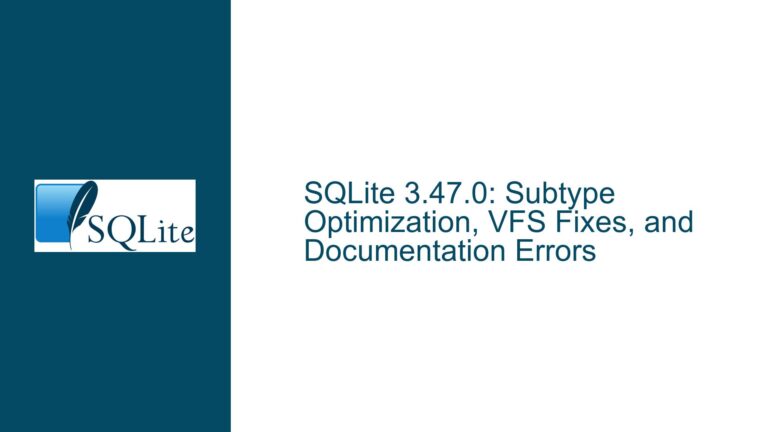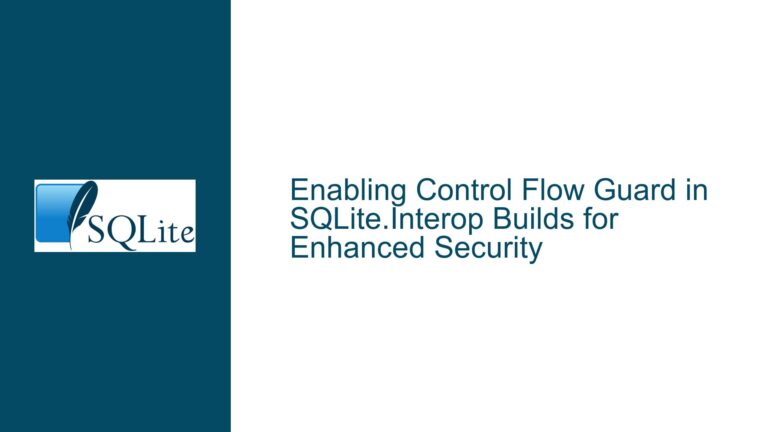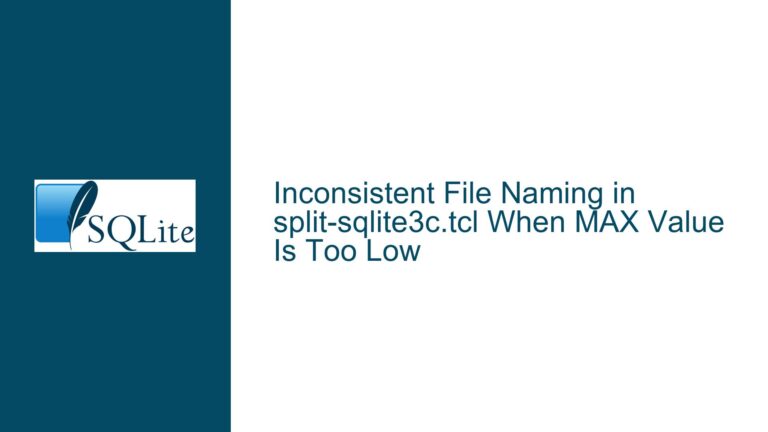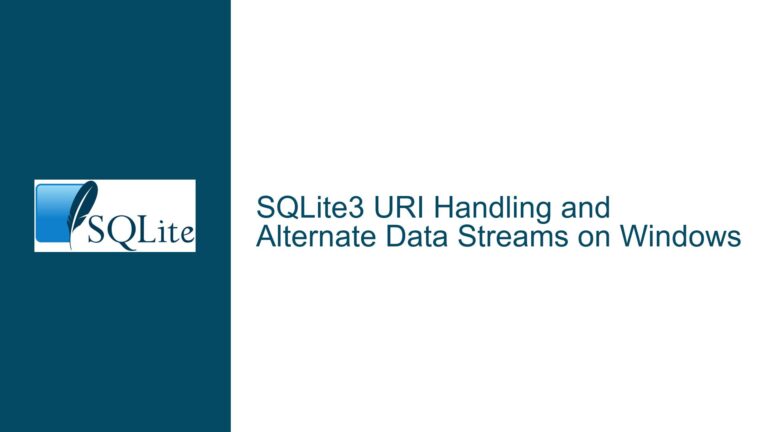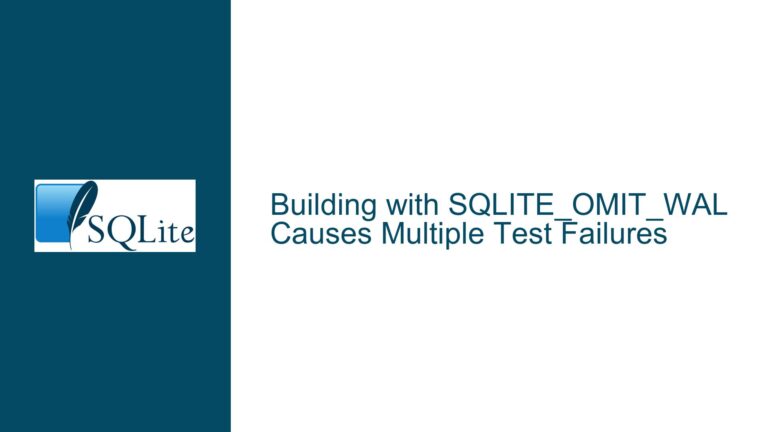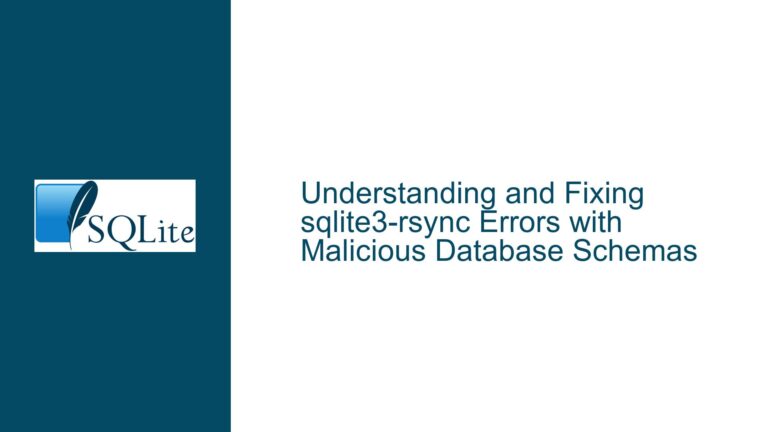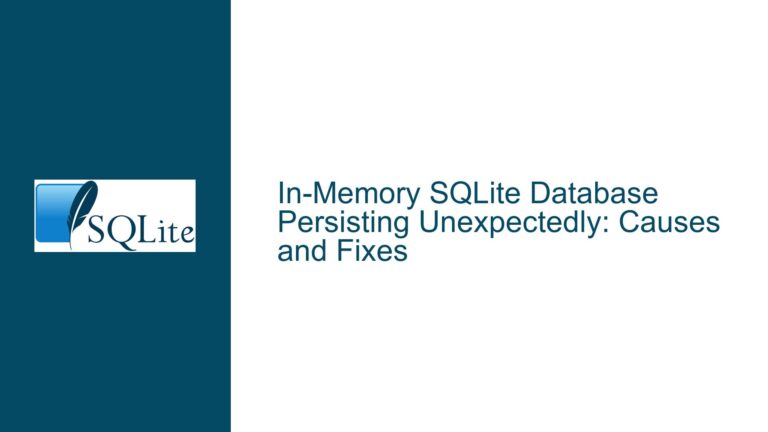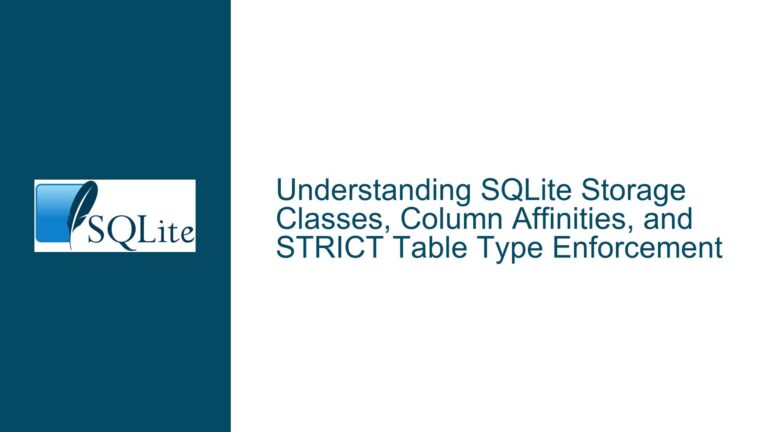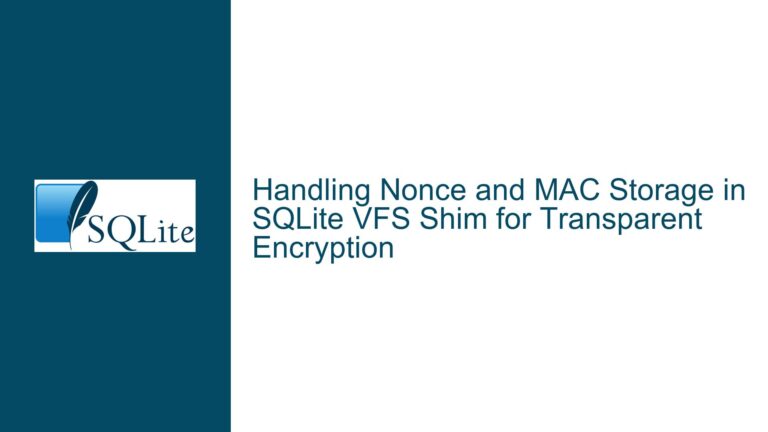SQLite 3.47.0: Subtype Optimization, VFS Fixes, and Documentation Errors
Subtype Optimization in Index Expressions and Its Performance Implications The core issue revolves around the optimization of subtype expressions in SQLite 3.47.0, particularly how they interact with index usage and query performance. Subtypes are a feature in SQLite that allow functions to return values with additional metadata, which can be useful for extensions like JSON…
